If you're a fan of the open road, then you know that an RV is the best way to travel. You have the freedom to explore new places without being tied down to a single location.
Of course, one of the challenges of RVing is making sure that you have enough power to run all of your appliances and accessories. That's where lithium batteries come in.
You may have a question, "How many lithium batteries do i need for my RV?" According to most experts, you need at least 4 lithium batteries for your RV. It can increase to 6 to 8 batteries, depending on the size and power needs of your RV.
A Guide to How Many Lithium Batteries do I Need for My RV

Lithium batteries are a great way to power your RV. But how many do you need? Don't worry, we're here to help you figure out how many batteries you need for your specific RV.
There are a few factors that will affect how many lithium batteries you need for your RV.
Size of Your RV:
The size of your RV will play a big role in determining how many rv batteries you will need. A small RV will require fewer batteries than a large RV. You will also need to consider how much power you will use on a daily basis.
If you plan on using a lot of electrical appliances, you will need more batteries than if you only plan on using them for basic needs. Additionally, the type of RV you have will also affect how many batteries you need.
A fifth wheel RV will require more batteries than a travel trailer. Ultimately, the best way to determine how many lithium batteries you need for your RV is to consult with an expert who can help you assess your power needs and recommend the right number of batteries for your particular situation.
Amount Appliances and Accessories:
As any RVer knows, there are a lot of appliances and accessories that can impact the number of lithium batteries you need. If you have a lot of lights, a TV, and a sound system, you'll need more batteries than if you just have a few lights.
Use Time of RV Appliances and Accessories:
If you frequently use your RV's stove, fridge, and microwave, you'll also need more batteries to power those appliances. Ultimately, the number of lithium batteries you need for your RV depends on how you use your RV and what appliances and accessories you have.
However, by understanding your power needs, you can make sure that you have the right number of batteries to keep your RV running smoothly. So, the next time you're planning a road trip, make sure to consult with an expert about how many lithium batteries you need for your RV.
Now that we know how many batteries you need, let's talk about what kind of appliances you can use with your new lithium battery setup.
Most Common RV Appliances that Use Lithium Batteries
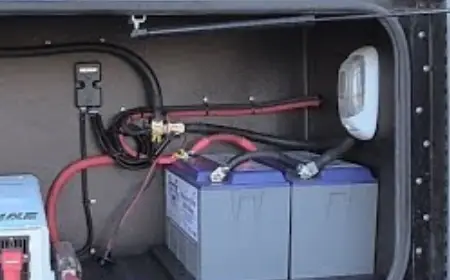
There are a few appliances that you'll find in almost every RV. These are the most common RV appliances that use lithium batteries:
TV:
A small RV might be able to run a TV on as little as one lithium battery, while a larger RV might require two or more. The power requirements of your TV will also play a role in how many batteries you'll need.
A TV with a higher power draw will require more batteries than one with a lower power draw. You can determine the power requirements of your TV by checking the manufacturer's specifications.
With this information, you can calculate how many lithium batteries you'll need to run your TV for an extended period of time.
Refrigerators:
In order to run a mini refrigerator in an RV, you need at least two lithium rv batteries. This type of lithium rv battery is very powerful and provides a lot of energy, making it ideal for running appliances.
However, you may need more than one battery depending on the size of your refrigerator and the length of time you plan to use it. For example, if you have a large fridge and you want to use it for extended periods of time, you may need two or more batteries.
On the other hand, if you have a smaller fridge and you only plan to use it occasionally, one battery should be sufficient. In any case, it's always a good idea to have more than one battery on hand in case you need it.
Furnaces:
RV furnaces typically use 12-volt electric ignition systems, which means they can be powered by lithium batteries. However, the number of batteries you'll need to run your furnace will depend on a variety of factors, including the size of your RV and the battery capacity.
If you have a large RV or if you plan to use your furnace regularly, you may need to invest in multiple batteries. Additionally, it's important to make sure that your batteries are properly charged and maintained; otherwise, they may not be able to provide enough power to keep your furnace running smoothly.
Water heaters:
RVs typically use 12-volt or two 6v batteries for their RV water heaters. Most RVs have two of these batteries, which are usually located in a storage compartment under the RV.
When shopping for new batteries, be sure to look for deep cycle batteries that are designed for RVs. These batteries will have a longer lifespan and will be better able to handle the heavy demand placed on them by an RV water heater.
In general, you will need two of these batteries to run your RV water heater. Be sure to consult with your RV dealer or an electrician to determine the exact number of batteries you need.
Relevant: Anode rod replacement for water heaters? When should you do it?
Radio:
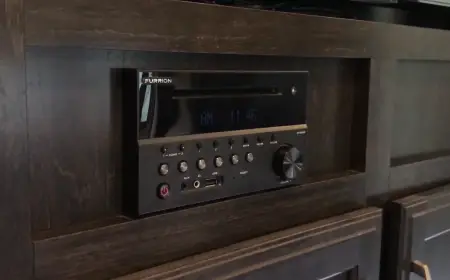
Another essential item for any RV is a radio. Not only can it provide entertainment during long road trips, but it can also be a lifesaver in case of an emergency. So, how many lithium batteries do you need to run a radio in your RV?
The answer may surprise you. Most modern radios are designed to run on very little power. In fact, some radios can even run for days on a single battery. However, it is always a good idea to have at least two batteries on hand, just to be safe.
Air Conditioners:
As anyone who has ever camped in a hot climate knows, an air conditioner can be a lifesaver. It is one of the most HVAC systems of an RV is the air conditioner. However, running an air conditioner on battery power can be a real challenge.
Depending on the size of your RV, you may need one or two batteries to run your AC unit. Larger RVs will require two batteries, while smaller RVs may only need one. Additionally, the type of battery you use will also play a role in how many batteries you'll need.
Coffee and Tea Maker:
If you're wondering how many lithium ion batteries you need to run your coffee maker for your RV, the answer depends on a few factors.
The first is the amp hour rating of the battery. This will tell you how much power the battery can store. Generally speaking, you'll need a battery with a higher amp hour rating if you want to run your coffee maker for longer periods of time.
The second factor is the voltage of the lithium ion battery. Most coffee makers require between 12 and 24 volts to operate. So, you'll need to make sure that your battery can provide this amount of power.
Finally, you'll need to consider how much power your coffee maker uses. This information can usually be found in the owner's manual. Once you have all of this information, you can calculate how many lithium ion batteries you need to run your coffee maker for your RV.
Toaster:
If you're like most RVers, you want to be able to enjoy all the comforts of home while on the road. That includes being able to toast your morning bagel or make a quick sandwich for lunch.
But running a toaster off of battery power can be a real challenge. Toaster ovens are one of the most power-hungry appliances in your RV, so you'll need to make sure you have enough lithium batteries to keep it running.
Most toaster ovens require at least 1000 watts of power to operate, so you'll need at least two lithium batteries to run one off shore power. If you're planning on using your toaster oven while boondocking, you'll need even more batteries to compensate for the lack of shore power.
So how many lithium batteries do you need to run a toaster oven in your RV? It really depends on how often you plan on using it and whether or not you have access to shore power. But with a little planning, you can enjoy all the comforts of home; even when you're far from the nearest outlet.
Electrical System of Your RV
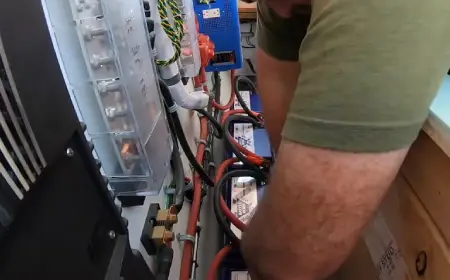
If you're lucky enough to own an RV, then you know that there's nothing quite like hitting the open road and exploring new places. However, before you set out on your next adventure, it's important to consider your RV's electrical system.
Every RV has two electrical systems: the feeding car system and the feeding coach system. You can either connect to an external power source, or you can generate your own power using a generator or solar panels.
If you plan to connect to an external power source, you will need to make sure that your RV's electrical system is compatible with the voltage and frequency of the power source.
Feeding Car System:
The feeding car system supplies electricity to the engine and the chassis of your RV. This system is powered by the alternator in your vehicle, so it only works when the engine is running.
It is a self-contained unit that includes a generator, batteries, and an inverter. The Feeding Car System is very easy to install and is great for RVs that are not connected to a city power grid.
Feeding Coach System:
The feeding coach system supplies electricity to everything else in your RV - including the lights, appliances, and any other 12-volt accessories. This system is powered by batteries, so it will work even when the engine is turned off.
The coach system also has a converter that helps to recharge the batteries while you're driving. In order to keep both systems running smoothly, it's important to regularly check the batteries and clean the terminals.
It's also a good idea to invest in a quality surge protector for your RV. By taking these simple steps, you can help ensure that your RV's electrical system stays in good working order for years to come.
Battery Type to Power Your RV
To power an RV, you need two types of batteries: a deep cycle battery and a starting battery. A deep-cycle battery is used for long-term energy storage, while a starting battery is used to start the engine.
Most RVs come with one or two deep-cycle batteries. If you plan on using your RV for extended periods of time without hooking up to an external power source, you may want to consider adding additional batteries.
A starter or house battery is typically much smaller than deep-cycle batteries and is not designed for long-term energy storage.
As the name suggests, a starter battery are used to start the engine. Once the engine is running, the alternator will take over and provide power to the RV.
If you're not sure what type of battery you need for your RV, it's always a good idea to consult with a professional. They can help you choose the right battery for your specific needs and ensure that it's properly installed.
Why do You Use Lithium Battery for your RV?
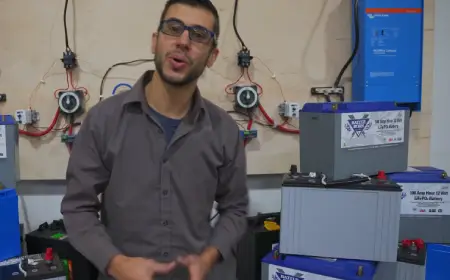
When it comes to powering your RV, there are a few advantages to using a lithium battery over a lead-acid battery.
Lighter Weight:
Lithium batteries are much lighter than lead-acid batteries, so they're easier to transport and install. They also have a higher energy density, so you can get more power out of a smaller battery.
In addition, lithium iron phosphate battery is a type of lifepo4 battery, which is known for being lightweight and powerful. When it comes to RVs, these batteries are a great option because of their high energy density.
More Efficient:
Many people who own RVs choose to use a lithium battery because it is more efficient. It has a longer lifespan than a traditional lead acid battery.
Long Lifespan:
Lithium iron phosphate batteries have a long lifespan, so you won't have to replace them as often. They also have a higher discharge rate than other types of batteries, so you'll be able to use more power without running out of juice.
Charge Faster:
Lifepo4 battery can be charged much faster than other types of batteries, which is helpful when you need to power up your RV quickly. If you're looking for a battery that can give you the most bang for your buck, consider dakota lithium iron phosphate batteries.
Lithium Batteries Alternatives to Power Your RV
When it comes to powering your RV, there are some different options available. You can choose to use lead-acid batteries, or Absorbed Glass Mat batteries. You can choose to use a solar panel or a generator.
Lead Acid Batteries:
The lead acid battery is the most common type of battery used in RVs. They require frequent maintenance and must be regularly cleaned and serviced. These batteries need to be regularly checked for lead levels and lead deposits. They should also be kept clean and free of dirt and debris.
Lead acid batteries are also not recommended for use in extreme cold weather, as they can freeze and break. Despite these drawbacks, lead acid batteries are not a good choice for many RVers over lithium batteries.
AGM Batteries:
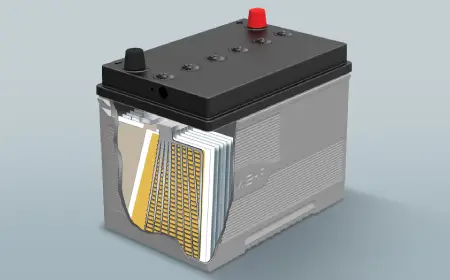
The use of AGM (Absorbed Glass Mat) batteries in RVs has long been a controversial topic. While AGM batteries offer many disadvantages over lithium batteries.
One of the main reasons why Absorbed Glass Mat Batteries are not well-suited for use in RVs is that they require a higher level of maintenance than other types of batteries. AGM batteries must be regularly charged and discharged in order to maintain their performance.
If they are not properly cared for, they can quickly lose their capacity. Additionally, AGM batteries are more expensive than other types of batteries, making them a less attractive option for budget-conscious RVers.
An AGM battery can be damaged by deep discharge, meaning that it may need to be replaced more frequently than other types of batteries. For all these reasons, AGM batteries are not the best choice for your rv.
Solar Panels:
Solar power is a great way to power your RV if you're planning on boondocking or dry camping. They are environmentally friendly and very quiet. A solar panel can be used to power lights, appliances, and even the air conditioner in your RV.
However, they do require some initial investment, as you'll need to purchase the panels, batteries, and a solar charge controller. You'll also need to have a place to store your solar panels when they're not in use.
Generator:
A generator is a great option if you're looking for a reliable source of power. Generators can be used to power lights, appliances, and air conditioners in your RV. However, they are noisy and can be expensive to operate.
Additionally, generators require regular maintenance, such as oil changes and tune-ups. For all these reasons, generators are not the best choice for everyone.
FAQs:
Q: Is it Worth Switching to an RV Lithium Battery?
Yes, switching to an RV lithium battery can be worth it in the long run. Lithium batteries have a longer lifespan and a higher discharge rate than other types of batteries. They also charge faster, so you'll be able to power up your RV quickly.
Q: What Size Lithium Battery do I need for my Travel Trailer?
Answer: Lithium batteries are different because they power a laptop. So you would need a 1 2v lithium battery for every one hour of charge and discharge cycle. This is why most people who use lithium batteries have more than one battery.
Q: Can I Replace my RV Lead Acid Battery with Lithium ion?
Replacing a lead acid battery with a lithium ion battery is a great way to improve performance and extend the life of your RV. Lithium ion batteries are smaller, lighter, and have a longer life than lead acid batteries.
Q: Do Lithium RV Batteries need to be Vented?
It is necessary to vent lithium batteries, although they are not subject to the gassing that occurs with lead acid batteries during charging. If they will be hot during charging, it can chance the performance and life of the battery will drop.
Final Thoughts:
Powering your RV with lithium batteries is a great way to reduce weight and increase efficiency. Without proper planning, however, it can be easy to under or over-power your rig.
Use this article as a starting point to help you determine "how many lithium batteries do i need for my RV" and you'll be sure to have the right amount of power for your next adventure.
We hope you will enjoy the benefits that lithium batteries can bring to your RV travels. If you have questions or comments, please feel free to reach out to us in the comment section below. We love hearing from our readers.
Leave a Reply